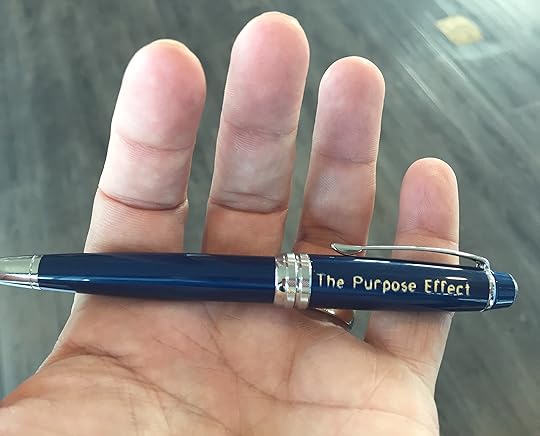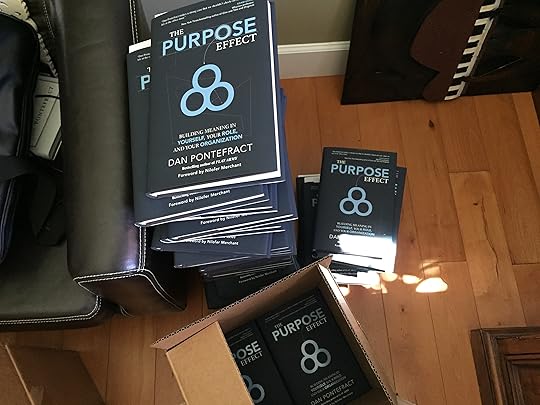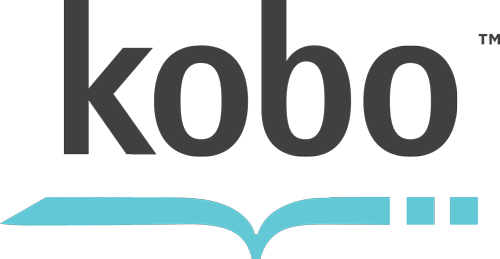Dan Pontefract's Blog, page 29
May 24, 2016
“The Inevitability of Death”
Fleeting, life is.
Ephemeral, in fact.
Words so cunning.
But soul? Intact.
Courage? Indeed.
Stay! Please.
The song ain’t done, and
It’s my soul you squeeze.
Much have you taught,
More than you know.
Love is eternal
Among the ya’s and whoa’s.
As dark rings the door
With body to take,
You are the ocean, and
I am just a lake.

Dan's Related Posts:Purple ReignIn VictimOmni Hotels & Resorts in Dallas Demonstrate Great Customer ServicePlease Don’t Let There Be Anonymity After DeathThe Tree Hugger
May 20, 2016
How Are Your Book Sales?
My latest book, The Purpose Effect, published May 10, some ten days ago.
A few people have been kind enough to ask, “How is the book launch going, Dan?” or “How are book sales, Dan?”
The questions come from a place of kindness. I respect the questioners’ curiosity and interest in me and/or the book.
But truthfully I don’t know.
Perhaps more importantly I don’t care.
Well, I do care, but not from a sales perspective, per se. What I care about is that the book makes a difference, that it is making a difference.
If that difference is with one person, fab!
For example, I received the following:
I think we all seek “purpose”. That purpose will change over time and may be multi-factorial in nature. Thanks Dan for helping me start finding mine again.
That’s all I need to know.
Someone was touched by the book. The words meant something to someone. The prose is making a difference.
And that’s good enough for me.
Dan's Related Posts:Full Book Jacket Cover Released for The Purpose EffectWe May Not AlwaysCool Contest: Win 1 of 10 Free Copies of The Purpose EffectThe State of Culture, Collaboration & Enterprise 2.0My Definition of Work and an Update on Book Two
May 14, 2016
The Purpose Effect Launch Party
 I’m a lucky boy.
I’m a lucky boy.
Not only did I marry the most wonderful woman in the world … against my wishes, she threw me a launch party for The Purpose Effect. It was epic. It was touching. It was an incredible night of love.
My dad flew in from England for the event, unbeknownst to me.
My good friend, Roman Picherack, flew in from Paris.
Paris.
 Unbelievably, Kelsy Trigg and Mary Hewitt–two amazing women profiled in the book–surprised me as well, and were in attendance.
Unbelievably, Kelsy Trigg and Mary Hewitt–two amazing women profiled in the book–surprised me as well, and were in attendance.
Kelsy lives in Vancouver.
Mary lives in Halifax.
Others came from Vancouver as well.
 The book launch party was held in Victoria, BC.
The book launch party was held in Victoria, BC.
The distance between Vancouver, Halifax, Stratford-upon-Avon and Paris is, as they say, bigger than a bread basket.
In all, roughly 75 people took time out of their busy schedules to help me celebrate the book. They even made me read from the book. I’ve never done it before. I hope it hit the mark.
 It’s now Saturday, a day later, and I’m still deeply moved by those seven magical hours.
It’s now Saturday, a day later, and I’m still deeply moved by those seven magical hours.
Thank you to everyone who came. Thank you to everyone who couldn’t, but who sent personal notes.
I am forever indebted to your kindness, caring and … higher purpose.
Love, Dano
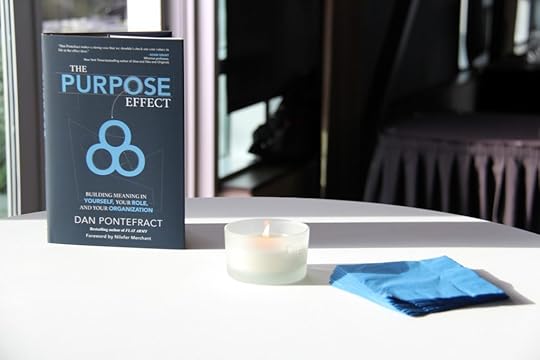
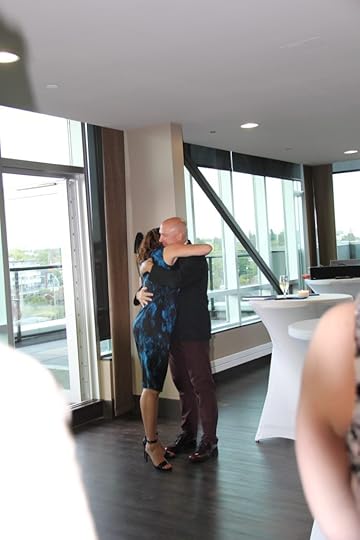
Dan's Related Posts:Flat Army Book Launch Party … A Sea of HumanityLo-Tech Talk #4: The Sweet Spot of PurposeThe Purpose Effect Book EndorsersWhy I Wrote “The Purpose Effect” BookFree Download of Chapter 1 – The Purpose Effect
May 8, 2016
And The Winners Of A Free Book Are …
… everyone!
I recently ran a contest for a free signed copy of “The Purpose Effect.” The entry fee was the disclosure of your “personal declaration of purpose.”
Thanks to everyone who were brave enough to submit their statement.
During our Sunday dinner, we discussed as a family each of the purpose statements. The goats (our children) were the ultimate judges, but felt that everyone should win a book. “It’s not fair,” said one of the goats. “These people were brave enough to share their purpose statement, and so they all should win. I don’t want to see any losers.”
Fair enough. Everyone’s a winner!
But they did pick their top three personal declaration of purpose statements, as follows:
#1 Shane Baetz
Build bridges but dream of sailing. When ready to depart and once you’ve landed on new shores, burn your boats (not the bridges).
#2 Airlie
I’m here to help.
#3 Cameron Bales
I work to let all diabetics keep their feet.
If you submitted an entry, please feel to reach out to me directly (dp at danpontefract dot com) and I’ll have a book sent to you via snail mail.
Thanks again to everyone.
Dan's Related Posts:Cool Contest: Win 1 of 10 Free Copies of The Purpose EffectWhy I Wrote “The Purpose Effect” BookFree Download of Chapter 1 – The Purpose Effect Lo-Tech Talk #4: The Sweet Spot of PurposeMy Purpose
The Graphic That Started My Journey Researching Purpose Three Years Ago
After I published my first book, Flat Army, in May of 2013, I began musing about the concept of purpose.
Whilst I knew (and still know) a connected and engaged culture is critically important for today’s complex and complicated organizations, something was gnawing at me.
For organizations to truly prosper–and for the people who work in them to become fully engaged–I thought there ought to be more than an improved and collaborative culture.
I was going through my iPad sketches recently (on the Bamboo Paper app, where I am constantly scribbling things down like diagrams, charts, etc.) and I came across this Venn diagram.
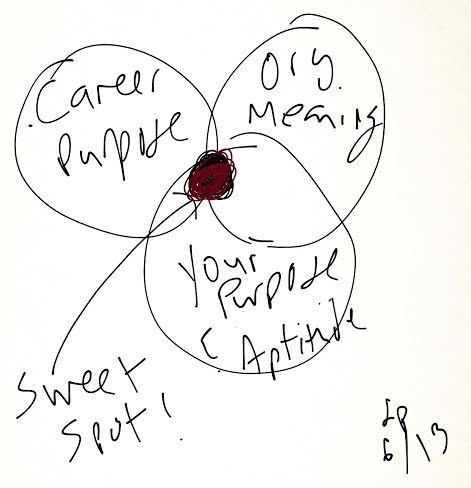
You know what’s funny?
I forgot that I sketched it.
Here’s what the final product looks like in “The Purpose Effect”.
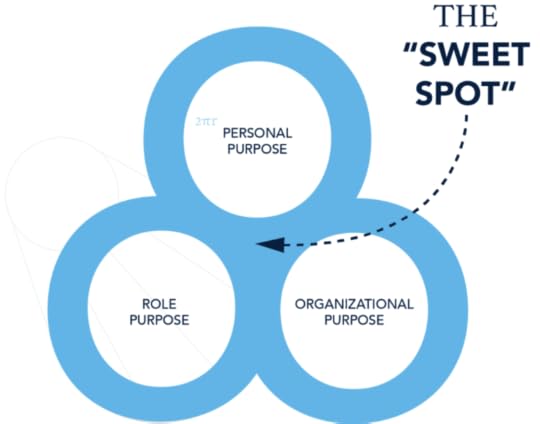
I hope you have the chance to read the book, and provide feedback.
Dan's Related Posts:Flat Army on the Back of a (Digital) NapkinCorporate Culture in a Venn DiagramWhy I Wrote “The Purpose Effect” BookLo-Tech Talk #2: The Leaders Guide to The Purpose EffectFree Download of Chapter 1 – The Purpose Effect
Three Tough Questions Answered About Purpose
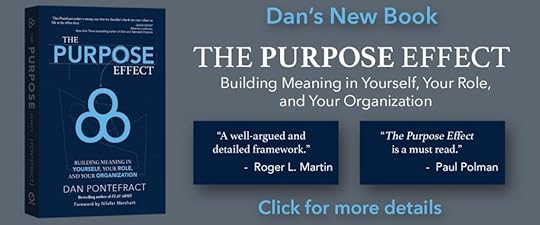
How can employees further strengthen their personal purpose?
Personal purpose, in essence, is a lifetime journey. Many individuals make the mistake of
believing once they “find themselves” there is no need to further develop or strengthen their
personal purpose. This is where a lot of trouble begins for people—where disengagement or
disaffection can creep in.
We ought to yearn for new experiences, knowledge and acumen whether through projects, roles, rotations, mentors, further education, and so on. People should consciously choose whether to operate with truth or dishonesty, with openness or intolerance, with grit or timidity, with love or hostility.
Every decision—every day of our being—is a decision on how we choose to act with personal purpose…or not.
What steps can you take if your role no longer suits your personal purpose?
If your role is in direct conflict with your personal purpose (whether by a newly revised
personal purpose or because the organization’s purpose has changed) there are really three
actions to take.
First, quit the role outright and trust yourself to secure employment in an organization and in
a role that brings the “sweet spot” back into alignment. I mention in the book that I employed
this strategy in 2008.
Second, continue to perform in the current role while simultaneously sorting out what role
and organization to shift into. This may be more feasible for those who still require the
paycheck in order to pay the bills. I also personally employed this option.
Third, discuss with your manager the option to either take some holiday time and/or an
extended unpaid leave to sort through your options.
In any and all cases, I also recommend that you should talk with as many people as possible
within their direct network, to ensure all angles, opportunities and options are being
discussed before any rash decisions are made, including whether to leave a role or to join a
new role.
Why is it important for companies to go beyond committing to customer satisfaction (even delighting their customers) in terms of having a purpose-oriented culture?
Customer satisfaction scores (or net promoter scores for some organizations) should be thought of as an outcome of both an engaged culture and a purpose-driven organization. Sadly, far too many organizations treat their customer satisfaction scores as the goal. The goal is not a high customer satisfaction score.
Indeed, the goal is not higher shareholder value or return for those companies publicly traded on the stock markets. The goal is to delight your customers, engage with your team members, become ethical within society, deliver fair practices and serve all stakeholders.
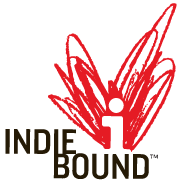
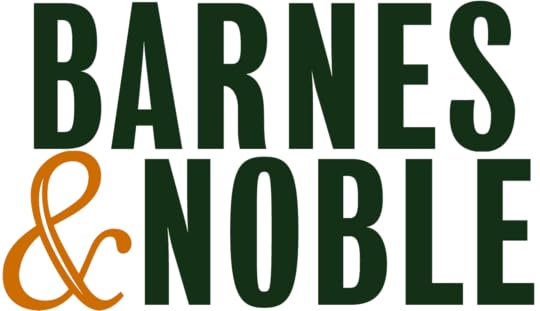
Dan's Related Posts:My TEDx Talk on The Purpose EffectLo-Tech Talk #2: The Leaders Guide to The Purpose EffectFree Download of Chapter 1 – The Purpose Effect Purpose: The Word of 2016Sheri Quit Her Job And Regained Her Purpose Sweet Spot
May 7, 2016
Inspiring CEO Quotes About A Higher Purpose
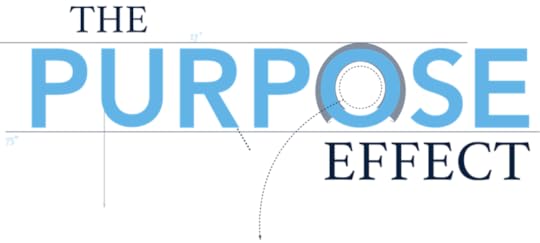 Lately (rather obviously) I have been thinking, researching, interviewing and writing a lot about the concept of purpose.
Lately (rather obviously) I have been thinking, researching, interviewing and writing a lot about the concept of purpose.
My work has led me to believe both society and employees are yearning for a higher sense of purpose. Society wants more from its leaders, be it from government, companies, the community, etc. Employees simply want more from their places of work including their leaders.
Together, when purpose is established and acted upon, great things can happen. All stakeholders can ‘win.’
 CEO of Salesforce Marc Benioff (Photo by Mike Windle/Getty Images for Weinstein Carnegie Philanthropic Group)
CEO of Salesforce Marc Benioff (Photo by Mike Windle/Getty Images for Weinstein Carnegie Philanthropic Group)Thankfully there are certain Chief Executive Officers who believe–like I do–that purpose is table stakes for employees, the organization and society on the whole.
Found below are what I believe to be fifteen CEO’s who are operating (or have operated) their organizations with a higher sense of purpose. Each CEO has a corresponding quotation that highlights their beliefs for a more purposeful society.
At the end of the day, you want to be profitable, but that’s not the meaning of life. – Daniel Lamarre, Cirque du Soleil
To be truly successful, companies need to have a corporate mission that is bigger than making a profit. – Marc Benioff, Salesforce
We have to bring this world back to sanity and put the greater good ahead of self-interest. – Paul Polman, Unilever
I’m here to build something for the long-term. Anything else is a distraction. – Mark Zuckerberg, Facebook
Essentially being a for-profit creates opportunity for doing greater good. And financial success as a for-profit with a social conscious carries greater credibility with your peers, potentially influencing actions of other businesses. – Brian Walker, Herman Miller
The blind pursuit of profit at all costs is untenable. It is essential that we make money the right way. After all, if communities suffer as a result of a company’s actions, those returns are not sustainable. – Indra K. Nooyi, Pepsico
I think if the people who work for a business are proud of the business they work for, they’ll work that much harder, and therefore, I think turning your business into a real force for good is good business sense as well. – Richard Branson, Virgin
When you’re surrounded by people who share a passionate commitment around a common purpose, anything is possible. – Howard Schultz, Starbucks
Just as people cannot live without eating, so a business cannot live without profits. But most people don’t live to eat, and neither must businesses live just to make profits. – John Mackey, Whole Foods
Money motivates neither the best people, nor the best in people. It can move the body and influence the mind, but it cannot touch the heart or move the spirit; that is reserved for belief, principle, and morality. – Dee Hock, Visa
People want to do well and do good. They want to understand how they’re making a difference in the world. Things change all the time, but your organization’s purpose transcends any individual product or service. – Mark Weinberger, EY
Our business success is directly linked to enhancing the well-being of the people who make and enjoy our products and to supporting the communities where we grow our ingredients. – Irene Rosenfeld, Mondelēz
Make meaning not money. – Brian Scudamore, O2E Brands
The real goal of what we’re doing is to have a positive impact on the world. Ed Catmull, Pixar
An organization’s culture of purpose answers the critical questions of who it is and why it exists. They have a culture of purpose beyond making a profit. – Punit Renjen, Deloitte
Want more? Download the entire Chapter 1 for free (PDF)
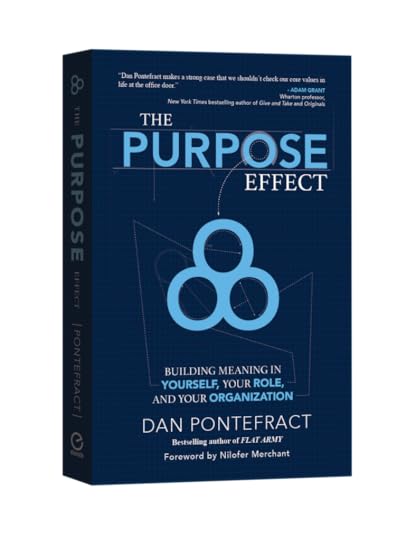 ______________
______________
Dan Pontefract’s next book, THE PURPOSE EFFECT: Building Meaning in Yourself, Your Role and Your Organization, will publish May 10, 2016. He is Chief Envisioner of TELUS Transformation Office. Pre-order here.
Dan's Related Posts:Can Humanism Replace Capitalism?Free Download of Chapter 1 – The Purpose Effect Lo-Tech Talk #3: Organizational PurposeBook Excerpt: The Purpose EffectPurpose: The Word of 2016
May 6, 2016
It’s Not So Hard To Be A Little More Cooperative

‘To work with‘ – that’s really what cooperating means. Sounds easy, doesn’t it.
In research conducted for her book, Hot Spots: Why Some Teams, Workplaces, and Organizations Buzz With Energy: And Others Don’t, author Lynda Gratton summarized an environment that was effectively more cooperative as follows:
… the energy of the cooperative mindset comes not from a mindset of competition but rather from a mindset of excellence. The focus is on the excellence toward which people are striving together rather than the competition of beating everyone else to the goal.
A leader may work tirelessly to analyze, decide and deliver but if it’s being done in a competitive atmosphere, if the team feels as though it’s being less than cooperative, it is unlikely to produce the results long-term that we are seeking. It may stall your efforts to improve employee engagement which will ultimately stall levels of productivity and business improvements.
Let’s examine the game known as Prisoner’s Dilemma to further our argument about cooperating versus competing as well as being open and harmonious versus closed and hurtful.
Invented in 1950 by Merrill Flood and Melvin Dreshe at the RAND Corporation, the actual title ‘Prisoner’s Dilemma’ originated from Albert Tucker when he added specific prisoner sentences to the game. Prisoner’s Dilemma at its root is a game about cooperation versus competition. The intent of the game is to test how cooperative people really are against the backdrop of pressure, stress and options.
Imagine you’re a criminal and you and your associates (the game can be played with several players) were recently caught by law enforcement. You’ve been summoned in front of a judge who has issued a sentence to be served immediately. Due to unforeseen circumstances, there are no witnesses and no evidence, so the sentence issued is minimal, however, crown prosecutors want to ensure someone dearly pays for the alleged misdemeanor.
You’ve been offered a plea bargain; rat out your colleague and your sentence is reduced but your colleague has their own sentence multiplied by a factor of five. Of course, unbeknownst to you, the same offer is issued to each of your fellow accomplices. Hence, the ‘prisoner’s dilemma’; do you cooperate and altogether as a team receive the original sentence, or, do you take an easier way out leaving your colleagues to suffer?
What would you do?
Dilemmas surface all the time within the work environment for leaders. Prisoner’s Dilemma is a fictitious scenario but when pressed to hit a deadline, to cut costs, to increase production or to mitigate a negative business result, do you as a leader demonstrate a cooperating attitude with the team or, conversely, do you compete, throw team members under the proverbial bus, and take the plea bargain?
When the stresses of work pile up, will you cooperate or compete? Will your harmonious and open environment be destroyed by acts of fear driven by pressure resulting in a more competitive environment within your team than the intended way of being which is to be cooperating?
I recall a situation that occurred in one of the high tech companies I once worked for. For about a 10 to 15 year period, software companies killed several thousand trees and shipped a physical user and help guide in the box to accompany the software CD’s. Under Research & Development was a team that was tasked to develop said guides. In another part of the company sat a team that also killed several thousand trees through the creation of physical classroom training guides.
When it’s software, and particularly when there are end users in mind, the overlap of content between the user guide and the training guides is quite high. Through that 15 year period, step-by-step sequential instructions were all the rage. Both teams, however, had independent content management systems and processes. Repeated attempts to cooperate were made at various leadership levels, from content developers, to graphic designers, to Vice-Presidents.
In the end, the teams remained competitive as opposed to cooperative. Sure, they liked each other, but not enough to consolidate systems and develop content—through shared processes—cooperatively and in unison. They chose to punish each other rather than assist. Were the leaders being harmonious or was it hurtful?
Cooperating – it is literally ‘to work with’. We ought to be using it more within our teams, and across our organizations.
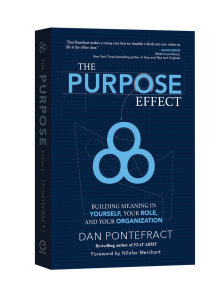 ______________
______________
Dan Pontefract’s next book, THE PURPOSE EFFECT: Building Meaning in Yourself, Your Role and Your Organization, will publish May 10, 2016. He is Chief Envisioner of TELUS Transformation Office. Pre-order here.
Dan's Related Posts:The Strength Of A Leader Comes From The Tree TrunkFuture Of Work: A Flat Army Of Open Leadership via A.G. LafleyThe Simple Act of TrustingDefining A Leader’s Duty Of CareSheri Quit Her Job And Regained Her Purpose Sweet Spot
May 5, 2016
Can We Truly Be Happy At Work?
 Can we truly be ‘happy‘ at work?
Can we truly be ‘happy‘ at work?
Let’s harken back to the days when we were children for a moment.
Do you remember the sheer joy and utter pleasure we experienced when we played? Whether outside and playing the game of hide and seek, frolicking at the community center playground, cavorting in the backyard or dancing by yourself in your bedroom … when we were playing, we were often filled with joy. It was bliss. It was free. There was a purpose, a meaning in our play.
I had the childhood of infinite dreams. In the summer there was a creek nearby that my bicycle always seemed to find. I would spend hours catching crayfish, building dams, playing fictitious war games with friends and generally being mischievous.
In the winter, not only was there snow to contend with and ice rinks to skate on, I grew up with an indoor pool where my Sea World routines with plastic orca whales and dolphins became legendary. Book-ended by the fall and spring seasons of tree forts, leaf piles and road hockey, my upbringing was definitively one of play.
As it turns out, if we have a playful childhood—devoid of the helicopter parenting concept first put forward in 1969 by Haim Ginott in Between Parent & Teenager—we are destined to not only be happier in life but we might end up making more in wages than those who are not.
Jan-Emmanuel De Neve of University College London and Andrew Oswald of the University of Warwick studied data from over 15,000 young adults and adolescents and they came across a startling finding. They found those having a happier and playful upbringing than their less inclined counterparts were destined to earn more in salary to the tune of $2,000 per annum by the age of 29. Between the dreariest and the happiest brackets, the differential amounts to $8,000 in earnings.
Given we can’t go back in time, how can we look forward?
More research comes from Gallup and Healthways who have partnered together since 2008 to interview roughly 178,000 Americans annually, asking questions and gaining perceptions on “physical and emotional health, behaviours, work environment, social and community factors, financial security, and access to necessities such as food, shelter and healthcare” to provide us with a well-being index.
 In America, well-being has been stuck at roughly 65 percent of the population since 2008. It has not really moved. In other words, 35 percent of Americans do not consider themselves to be in a state of well-being or therefore “happy at work.” When a third of the organization does not possess a sense of well-being at work, you can be certain these types of employees are disengaged with a purpose mindset a long journey away.
In America, well-being has been stuck at roughly 65 percent of the population since 2008. It has not really moved. In other words, 35 percent of Americans do not consider themselves to be in a state of well-being or therefore “happy at work.” When a third of the organization does not possess a sense of well-being at work, you can be certain these types of employees are disengaged with a purpose mindset a long journey away.
When surveying on a global basis, Gallup and Healthways found that only 18 percent of respondents are likely to be thriving in purpose well-being. The researchers define purpose as “Liking what you do each day and being motivated to achieve your goals.”
Deloitte sees things in a slightly different but equally alarming perspective. While workers—at least two-thirds of them—may consider themselves as satisfied, roughly the same number believe that “businesses are not doing enough to instill in their culture a sense of purpose aimed at making a positive impact on all stakeholders.”
If you stop and think about it, the various data points actually makes a lot of sense.
With only two-thirds of workers satisfied with their life at work and less than 30 percent actually engaged at work according to various studies, it’s not surprising 68 percent believe their organization could be doing more for society, as Deloitte has unearthed.
Could it be that we have erased the elements of play from our childhood—as workers progress from high school to university to organized work—creating monotonous jobs or hollow work environments for employees? All the while, leaders are creating organizational structures that are hierarchical, mechanistic and territorial, coupled by a fixation on maximizing shareholder value or bureaucratic tendencies.
 If, however, the purpose of the organization and its team members is aligned—and the organization is operating in an open, collaborative, fun and harmonious culture—it can potentially deliver the one-two punch of societal and organizational benefits.
If, however, the purpose of the organization and its team members is aligned—and the organization is operating in an open, collaborative, fun and harmonious culture—it can potentially deliver the one-two punch of societal and organizational benefits.
If our work environments were to become more playful with respect to its culture and its purpose, perhaps that would help employees become engaged while feeling a sense of purpose in their roles as well.
Here are a few things to consider at your place of work:
Business is serious but you don’t have to be all the time; ease up and smile for starters.
Lighten the mood; encourage those on your team to poke a little fun at you once in a while, and at events that undoubtedly will go sideways.
Don’t work till you drop; having some fun at work can come in the form of coffees, lunches & external outings. Get out and walk.
Gaming isn’t just for kids; participate in online games or outings like bowling or softball as a team.
Jokes aren’t taboo; learn how to tell them and even better, encourage your team to do so as well.
In 1985, the Communication Department of the University of Delaware explored patterns of humorous communication against the context of organizational culture. The research indicated humour can:
Manage the tension between hierarchy and egalitarianism that emerges from the group’s enactment of power structure;
Regulate interdependence among group members; and
Balance the forces of differentiation and integration in the group’s communicative enactment of cultural identity.
I’m not suggesting you join the circus, but start by adding a little playfulness to your team or organization’s operating style. Employees not only want to have a sense of purpose in their role at work, they want to have some fun, too.
 __________
__________
Dan Pontefract’s next book, THE PURPOSE EFFECT: Building Meaning in Yourself, Your Role and Your Organization, will publish May 10, 2016. He is Chief Envisioner of TELUS Transformation Office.
Dan's Related Posts:Clowning Around – An Important Leadership AttributeBook Excerpt: The Purpose EffectDefining A Leader’s Duty Of CareMy TEDx Talk on The Purpose EffectWhy I Wrote “The Purpose Effect” Book
May 4, 2016
Lo-Tech Talk #4: The Sweet Spot of Purpose
 The time has come for purpose to be woven into our lives, our organizations and in the roles we hold at work.
The time has come for purpose to be woven into our lives, our organizations and in the roles we hold at work.
In this “Lo-Tech Talk”, I explain the three categories of purpose (personal, organizational and role) found in my new book, THE PURPOSE EFFECT.
It’s an introductory video aimed at users who want to understand the basic premise to the book, while getting an understanding of the “sweet spot” model. The time has come for purpose. We all deserve to reach the “sweet spot.”
The video is 3:46 in length.
Dan's Related Posts:Lo-Tech Talk #3: Organizational PurposeLo-Tech Talk #2: The Leaders Guide to The Purpose EffectLo-Tech Talk #1: Introduction to Personal PurposeFree Download of Chapter 1 – The Purpose Effect My TEDx Talk on The Purpose Effect

